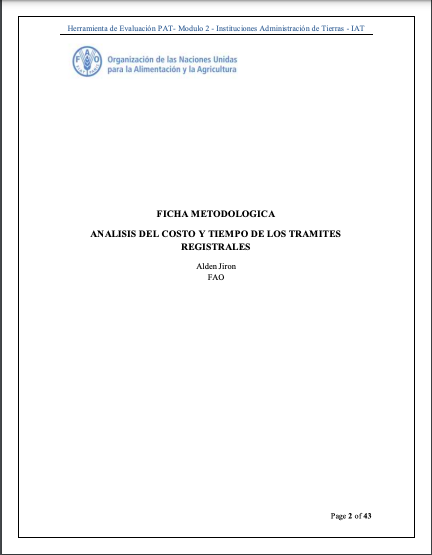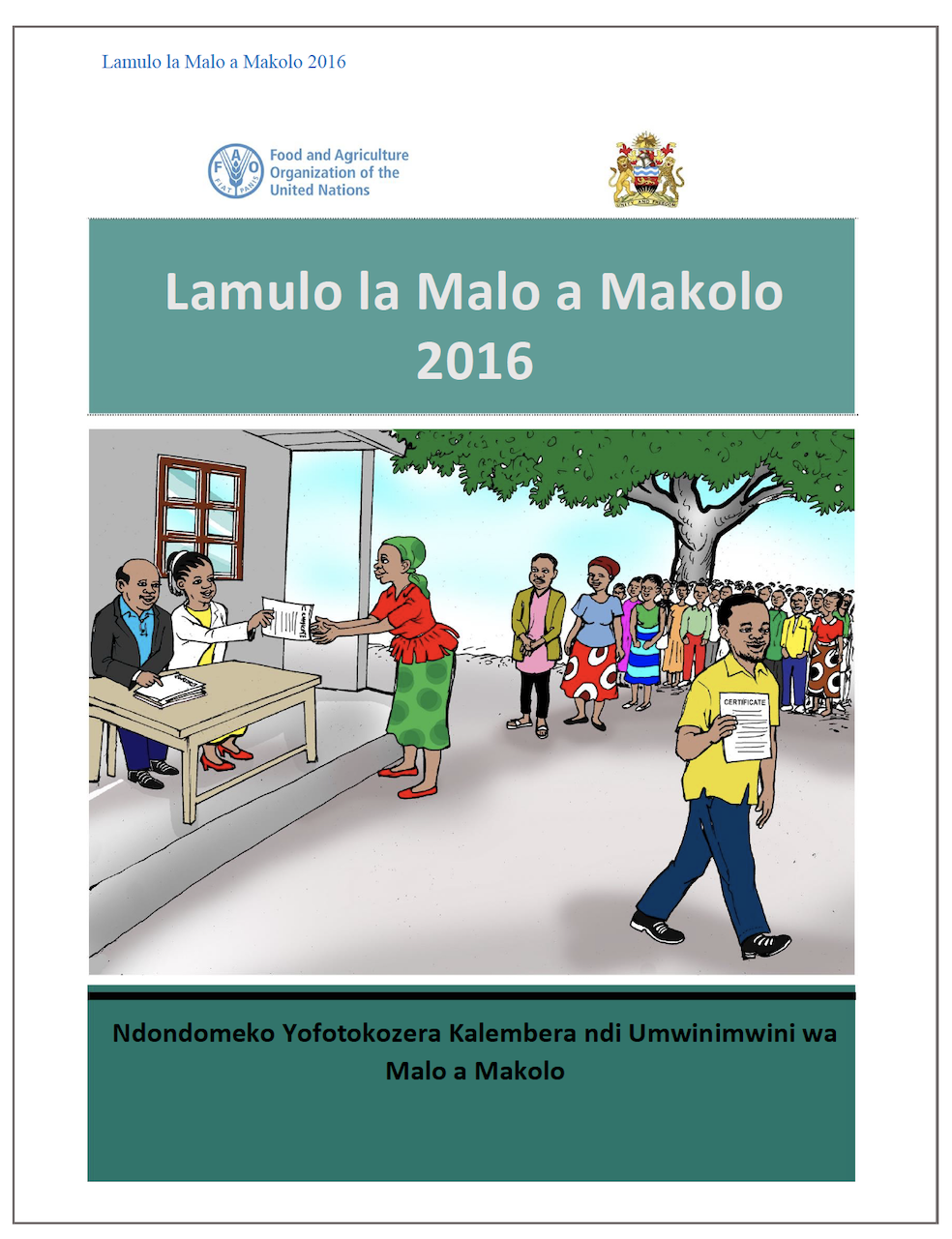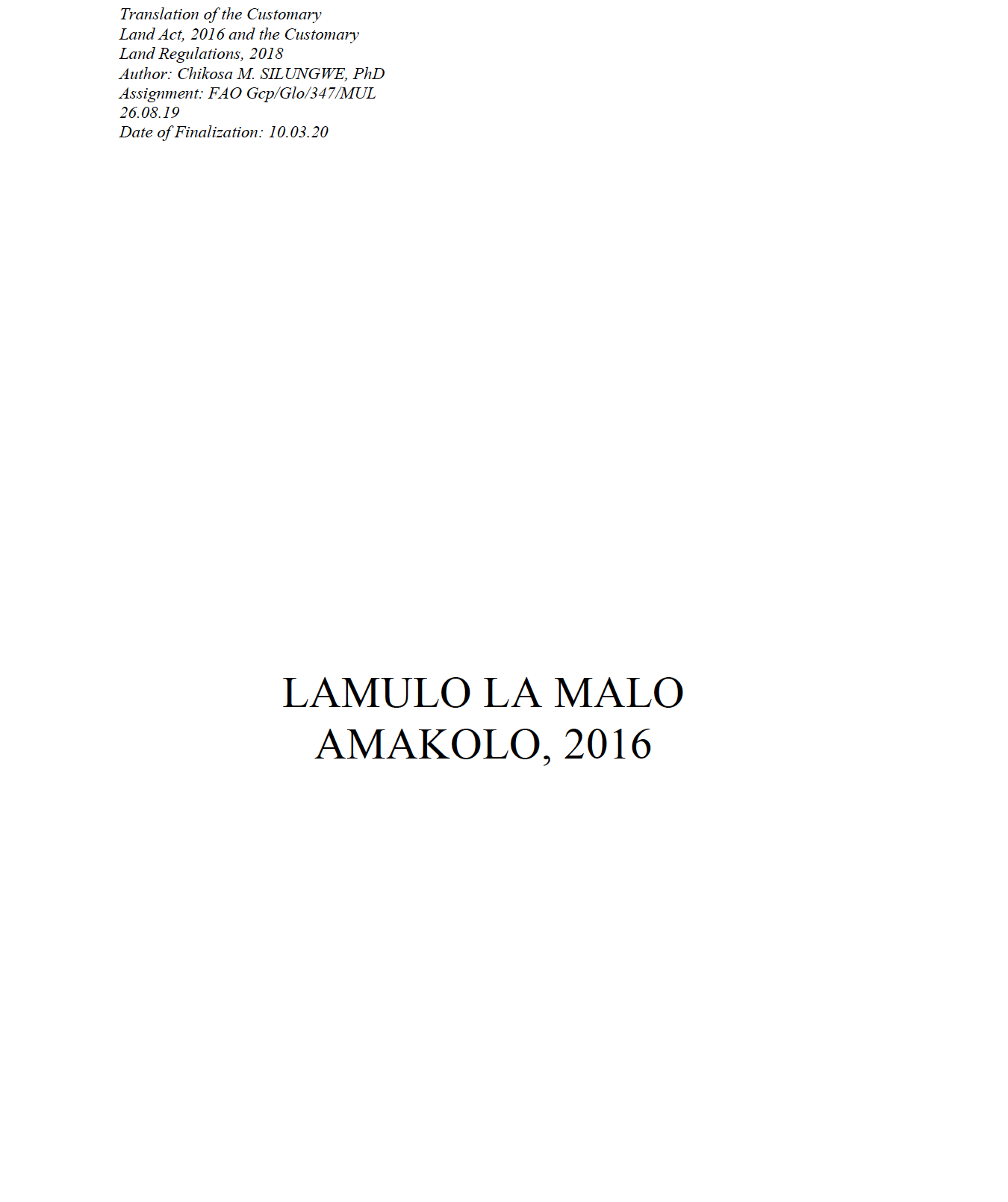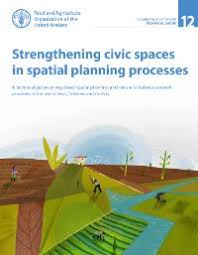Focal point
Location
The Food and Agriculture Organization of the United Nations leads international efforts to defeat hunger. Serving both developed and developing countries, FAO acts as a neutral forum where all nations meet as equals to negotiate agreements and debate policy. FAO is also a source of knowledge and information. We help developing countries and countries in transition modernize and improve agriculture, forestry and fisheries practices and ensure good nutrition for all. Since our founding in 1945, we have focused special attention on developing rural areas, home to 70 percent of the world's poor and hungry people.
Members:
Resources
Displaying 61 - 65 of 5074Fact sheet 2.1 Analysis of the cost and time of registration procedures
Esta ficha tiene como propósito estab lecer las pautas metodológicas para realizar una evaluac ión en términos de eficiencia y medir la operatividad de los tramites registrales relativosa dos servicios principales : inscripciones(definitivas, provis ionales, cancelac iones) y certific ac ionesde documentos.
Lamulo la Malo a Makolo 2016
Msonkhano Wodziwitsa Atsogoleri a ma Dipatimenti ndi Mabungwe a pa Boma
Mamembala a nthambi yoyendetsa chitukuko pa Boma ayenera kudziwa za lamulo la malo a makolo koyambirira kuti asankhe dera lomwe angakayambire ntchito zokhudza lamuloli.
Msonkhano Wodziwitsa Makomiti a ADC, VDC ndi Magulu a m’madera za Lamulo la Malo a Makolo
Makomiti a ADC ndi VDC ndi ofunika kwambiri pothandiza anthu a m’madera mwawo kumvetsetsa za lamulo la malo a makolo.
Chisankho cha Komiti Yoyendetsa za Malo a Makolo
Strengthening civic spaces in spatial planning processes
This technical guide provides strategies on how to strengthen, protect and promote legitimate tenure rights in spatial planning processes at the local, regional and national levels. It addresses state authorities involved in spatial planning processes, national governments and local authorities, and those operating on behalf of the state or within customary governance systems.
Prosperity in place
This report explores how forest and farm producer organisations (FFPOs) can best nurture youth and address youth migration. Youth (15-24 years of age) bring energy and innovation to forest and farm production systems. Of a total global youth population of 1.2 billion, 85% live in developing countries where they make up the mainstay of the rural workforce. Yet, 75% of youth are currently classified as underutilised (unemployed; in irregular or informal jobs; or outside of formal education and training).











